For most visitors to Australia, the Great Barrier Reef is a bucket list destination. For those lucky people who have plunged under the ocean's surface, their world is open to wonder. Sea turtles swim by as they surface for air. Fish curiously approach your snorkel mask. In the depths below loom the humbling shadows of large sharks and rays. Parrotfish scrape noisily at the Reef. At certain times of the year, you can even be serenaded by passing humpback whale song. It's an awakening of the senses - a 360o immersion.
Sir David Attenborough says his first scuba dive on a coral reef left him so stunned, he forgot to breathe. "Nothing I'd ever seen on land came close to the sensory overload of so much life and so much diversity right before my eyes."
The privilege of these intimate, close-up encounters - without a doubt - can change how you see the world. For our staff at the Great Barrier Reef Foundation, these moments have been life changing, catapulting careers in marine science, community engagement and project management. Here, our staff share their motivations to have positive and lasting impacts for our oceans, our communities and our planet.
#What makes the Great Barrier Reef special?
Dr Mary Bonin describes the Great Barrier Reef as a living miracle and is dedicating her life to protecting it. She leads the COTS Control Innovation program, working to tackle crown-of-thorns starfish outbreaks - one of the biggest threats to the Reef.
She says: "The Great Barrier Reef ecosystem is the product of billions of tiny plants and animals working together over millennia to build vast reef habitats that are collectively bigger than entire countries. And today these Reef habitats are home to thousands of species of plants and animals, many of which are incredibly beautiful and unique.
"It's an amazing feat of nature and nothing short of a miracle in my book. And we are lucky enough to be able to visit and be a part of this living miracle."
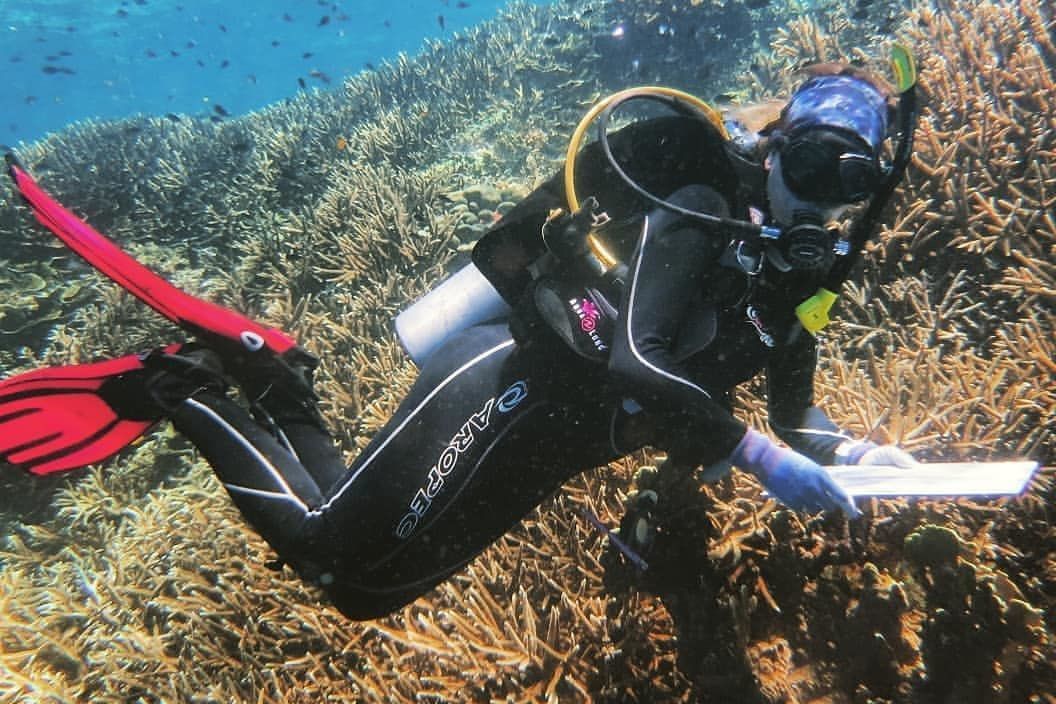
Dr Mary Bonin leads the COTS Control Innovation program, working to tackle crown-of-thorns starfish outbreaks.
Senior Program Manager of Coral Reef Restoration, Johnny Gaskell has explored the length of the Great Barrier Reef, from the northern-most tip to the reefs in the south to better understand coral cover.
"It's the rich diversity, species abundance and ecosystem complexity over such a large scale that makes the Great Barrier Reef so special. The scale is impossible to even comprehend. The more you learn about the Reef, the more you realise you don't know."
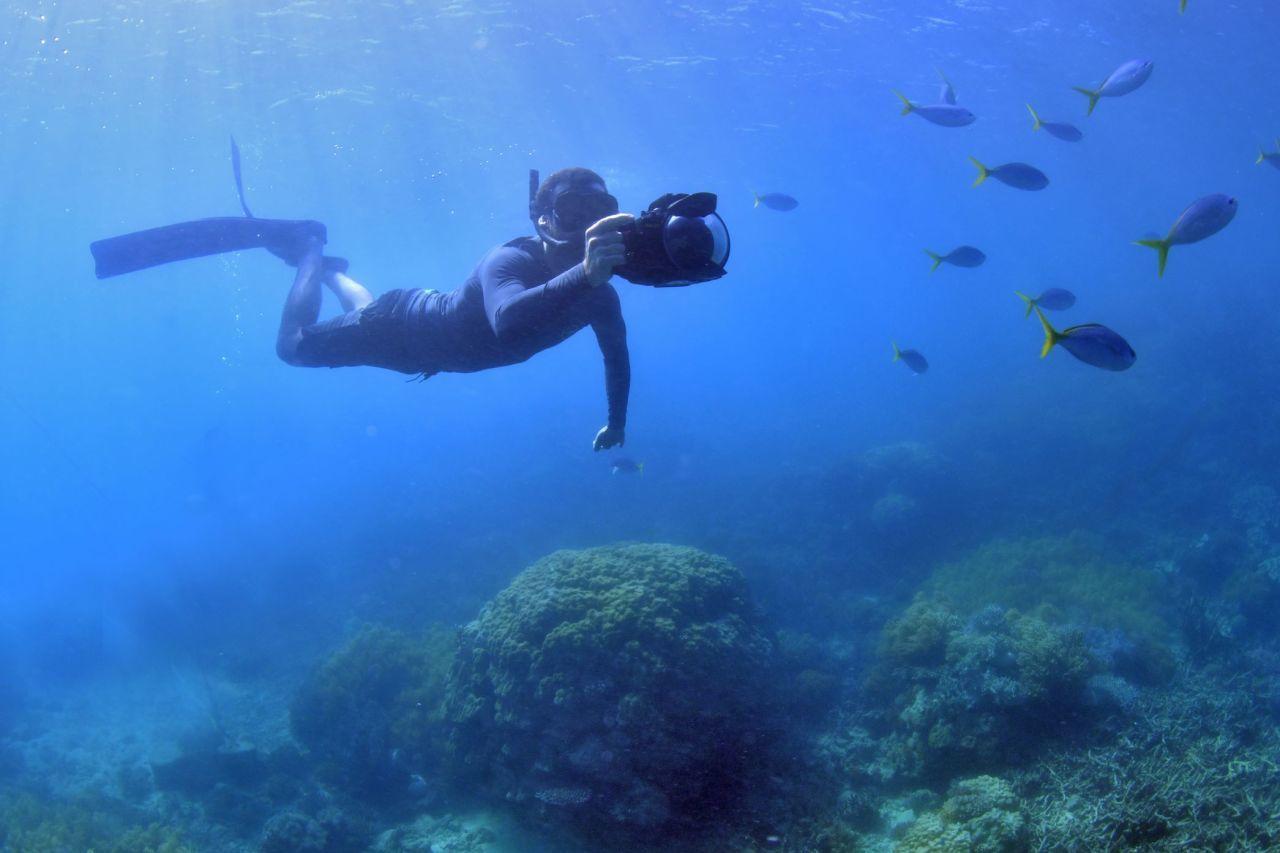
Johnny Gaskell has explored the length of the Great Barrier Reef to better understand coral cover.
#What motivates you to help the Reef?
For Jenn Loder, a dive trip to Palau led her to become one of the Great Barrier Reef's most passionate community champions, inspiring thousands to create a more sustainable future. Her role at the Great Barrier Reef Foundation brings together Traditional Owners, community organisations, scientists, managers and local business to grow existing community projects and pilot new ones that help protect the Reef.
"I feel so privileged, humbled and inspired to work in this role with an amazing network of partners at this crucial window of time for the Reef. We all have a real opportunity and an enormous responsibility to do what we can and to keep exploring new ways to grow our positive impact together. Community-led action is a vital and powerful force in driving change."
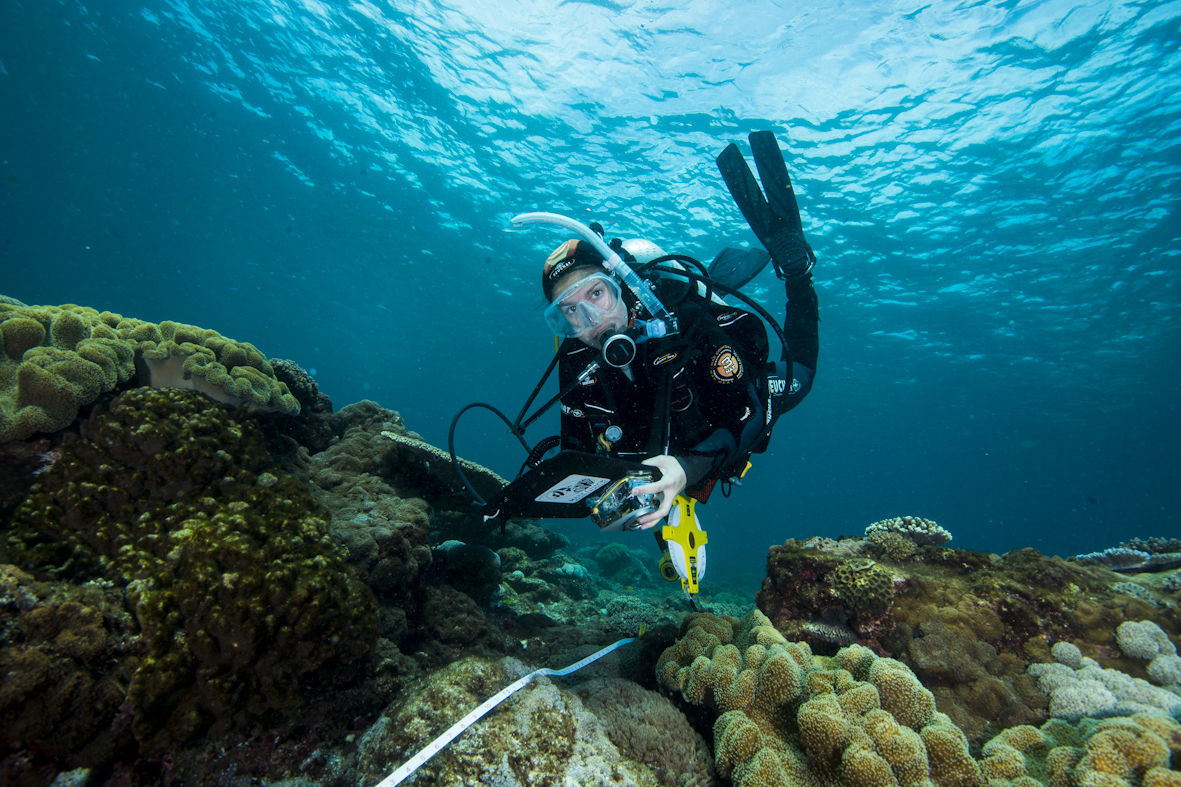
Jenn Loder is a passionate community champion bringing people together to pilot and grow community projects that help protect the Reef. Credit: Gary Cranitch.
Similarly, Melissa Rodgers is driven by the collective challenge to improve Reef health and combat the impacts of climate change. As the director of Coral Reef Restoration at the Foundation, she's leading large-scale coral restoration efforts across the Great Barrier Reef and the wider Pacific region.
She says: "The Great Barrier Reef is a complex environment that presents lots of challenges, and there are so many brilliant minds working to help save it. I like being able to bring the best minds together to come up with novel ideas for the benefit of the Reef."
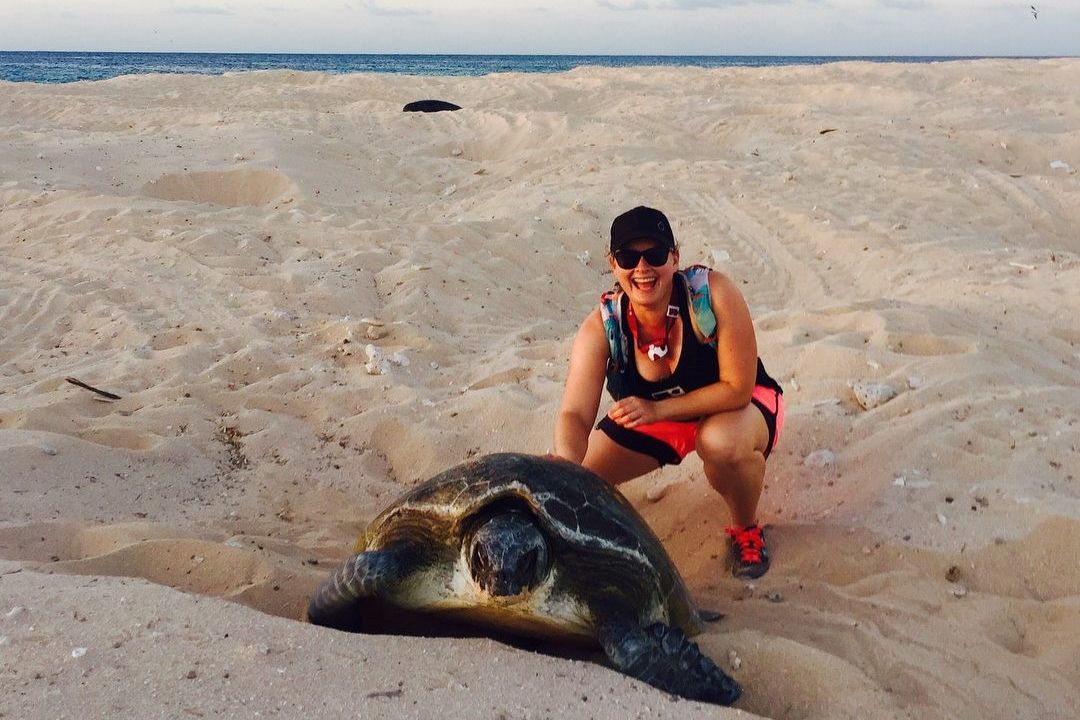
Melissa Rodgers is leading large-scale coral restoration efforts across the wider Pacific region.
#What is one thing you'd like people to know about the Reef?
As the Nature Markets Lead at the Great Barrier Reef Foundation, Kristina Koenig has been working to develop a biodiversity crediting methodology for coral reefs. The one thing she'd like everyone to know about the Reef is that its impact and importance go beyond its physical location.
"I think for people in the immediate vicinity, the threats are obvious. But for many others - even those that know the Reef is under threat from climate change - the current trajectory of the Reef might seem like a huge tragedy, but it may not necessarily be front of mind. A risk to the Reef is a risk to so many livelihoods, the environment and ecosystems around the world, so we should all be invested in taking action on all the possible fronts to collectively make a difference."
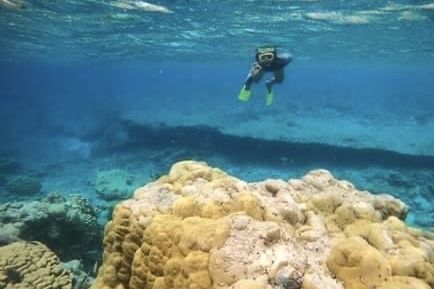
Kristina Koenig has been working to develop a biodiversity crediting methodology for coral reefs.
#What can you do to protect the Great Barrier Reef?
90% of the world's reefs are projected to be lost by 2050. We've already witnessed a heartbreaking decline in marine life on the Great Barrier Reef, and with climate change impacts accelerating, even more species are at risk.
We've made significant progress advancing methods to restore reefs, but coral reefs remain one of the most vulnerable ecosystems on the planet. It's not too late to protect coral reefs and the marine life that calls them home, but our window to act is closing fast. By supporting research and innovation that strengthen the Great Barrier Reef's marine ecosystem, you help protect and restore a place you love.
The Great Barrier Reef isn't just a destination - it's a transformative experience that stays with you. Visit the Reef. Join the movement, learn about our projects and even spearhead your own fundraising initiative.
Every coral matters. Every effort counts. The Reef needs your help.






